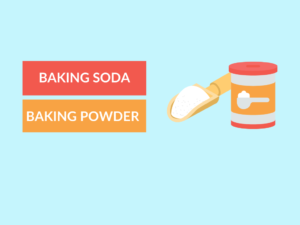What is Creatine Monohydrate?
Creatine monohydrate is a popular supplement used by athletes and bodybuilders to enhance athletic performance and muscle strength. It is a naturally occurring compound in the body and is also found in some food sources like meat and fish. Creatine monohydrate is widely used due to its ability to increase the production of ATP, which is the primary source of energy for muscle contractions.
Examples of Creatine Monohydrate
Some examples of creatine monohydrate supplements available in the market include:
– Optimum Nutrition Micronized Creatine Powder
– MuscleTech Platinum Creatine Monohydrate Powder
– Bulk Supplements Creatine Monohydrate Powder
What is HCL?
HCL stands for hydrochloride, which is a type of compound where a hydrogen chloride molecule is combined with another molecule. In the context of supplements, HCL is often used to enhance the absorption and bioavailability of certain substances. It helps in improving the absorption of nutrients and provides better effectiveness.
Examples of HCL
Some examples of HCL supplements include:
– Betaine HCL
– HCL Digestive Enzyme Blend
– Creatine HCL
Differences between Creatine Monohydrate and HCL
| Difference Area | Creatine Monohydrate | HCL |
|---|---|---|
| Bioavailability | Lower | Higher |
| Dosage | Higher | Lower |
| Cost | Lower | Higher |
| Stability | More stable | Less stable |
| Absorption Rate | Slower | Faster |
| Hydration | Can cause water retention | Less likely to cause water retention |
| Purity | Higher purity | Varying purity |
| Form | Powder | Can be powder or capsule |
| Taste | Bland | Can have a strong taste |
| Popularity | More popular | Less popular |
Conclusion:
In summary, creatine monohydrate and HCL differ in terms of bioavailability, dosage, cost, stability, absorption rate, hydration, purity, form, taste, and popularity. Creatine monohydrate is more affordable, stable, and has higher purity, but it has lower bioavailability and absorption rate. On the other hand, HCL has higher bioavailability and absorption rate, but it is more expensive and less stable. The choice between these two supplements depends on individual goals and preferences.
People Also Ask:
1. Is creatine monohydrate safe?
Yes, creatine monohydrate is considered safe for most individuals when taken within recommended dosage guidelines.
2. Can HCL cause any side effects?
HCL supplements, including creatine HCL, can cause minor side effects like gastrointestinal discomfort or nausea in some individuals. It is important to follow dosage instructions and listen to your body.
3. Which is more effective, creatine monohydrate, or HCL?
The effectiveness of creatine monohydrate and HCL may vary among individuals. It is recommended to try both and see which one works best for you.
4. Can I take creatine monohydrate and HCL together?
There is no harm in combining creatine monohydrate and HCL supplements. However, it is essential to follow recommended dosages and consult with a healthcare professional if you have any concerns.
5. Can women use creatine monohydrate and HCL?
Yes, both creatine monohydrate and HCL can be used by women. It is important to start with lower doses and monitor any potential side effects. As always, it is recommended to consult with a healthcare professional before starting any new supplement regimen.


